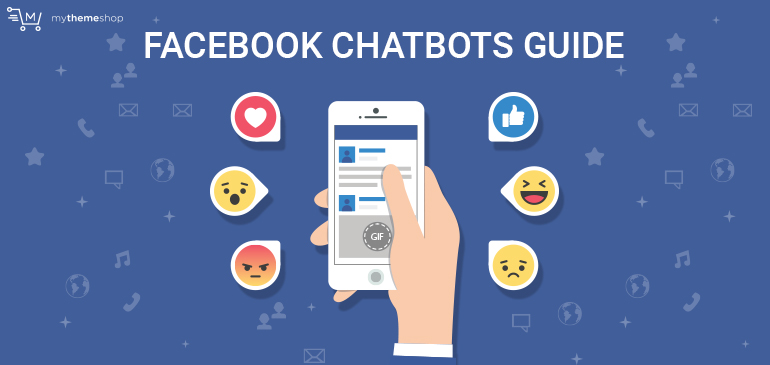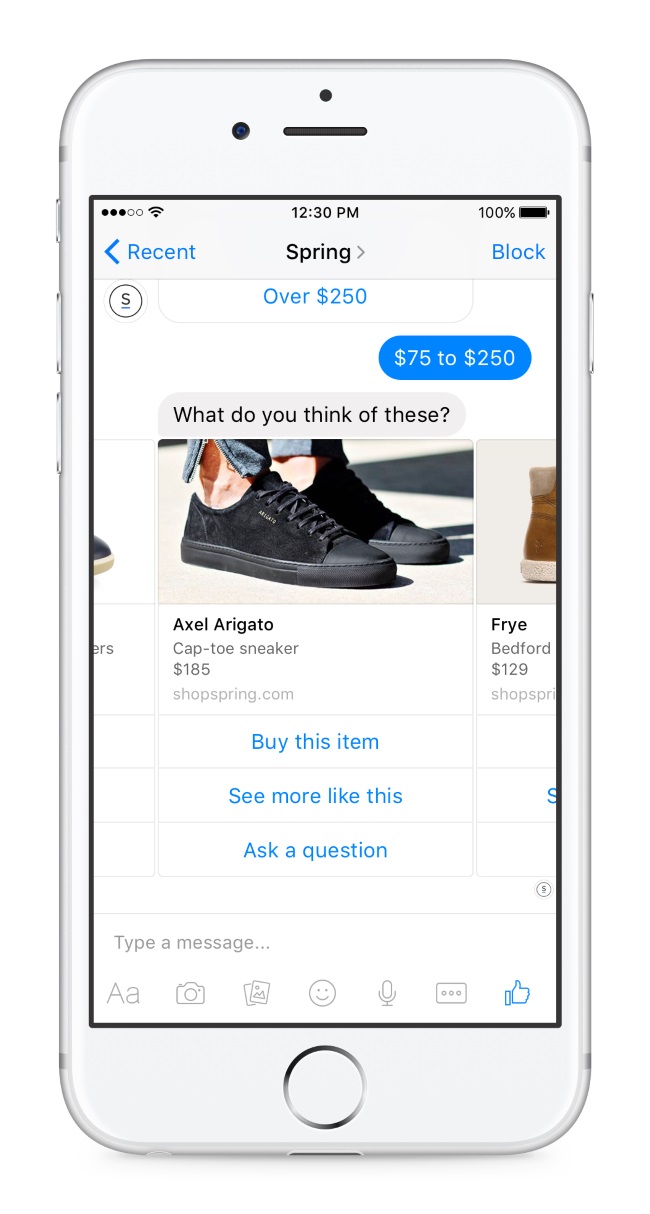
Regardless of the size, nature, and industry of your business, you can integrate AI-powered chatbots with Messenger to deliver a seamless customer experience. Facebook allowed the integration of AI-powered chatbots in Messenger to create richer bot-to-user interactions.With just one bot, you can engage your target audience on all of the platforms where Messenger exists, including iOS, Android, and web devices. In 2016, Facebook announced bots for Messenger to help businesses get more personal, proactive, and streamlined in the way they interact with people.It also helped brands boost user engagement as consumers can easily communicate and interact with their business from the same Messenger app. This enabled people to better express themselves with GIFs, photos, videos, audio clips, and more. In 2015, Facebook also launched Messenger Platform to allow integrations with third-party apps.This opened more opportunities for businesses to boost their growth and consumer engagement. People can receive notifications, track purchases, and have personal conversations with the customer service representatives of various companies. During F8, Facebook’s annual developer conference in 2015, they announced that the Messenger app would allow consumers to interact with businesses.It enabled people to send messages one-on-one or to groups of friends. Facebook launched Facebook Messenger, a stand-alone messaging app, in 2011, to enable people to communicate with their friends and family members.Let us take you through the journey of Facebook Messenger, from being launched as a communication channel to being leveraged to deliver customer service today. You can now use AI-powered Messenger bots to instantly resolve customer requests on any channel, for more satisfied customers. Related article: Using AI to deliver superior Customer Experience with Jeanne Bliss Facebook Messenger: From a Communication Channel to a Customer Service Channel You also need to use omnichannel, AI-powered chatbots to automate messaging in order to be there for your customers 24/7. If you want to deliver the kind of experience your customers want, you need to deploy a strategy that includes Facebook Messenger as a customer service channel. We’re sure you don’t want to ruin your customers’ experiences when they connect with your brand through this channel.

This can lead to longer response times which, in turn, causes a terrible customer experience. Many times, they don’t even have appropriate answers to customer requests. Most social media teams aren't concerned with questions or complaints they receive via Facebook Messenger. There's a gap between social media teams and customer service teams. They are not omnichannel customer service platforms. Most bots that brands use are much more simple and only work on Facebook Messenger. You probably already have a strategy to have engaging conversations with your customers on Messenger and strengthen your relationships. It uses artificial intelligence (AI) to converse with people.

What is a Facebook Messenger Chatbot?Ī Facebook Messenger chatbot is an automated messaging tool that is integrated into the Messenger app. That’s why it is important to include Facebook Messenger as a customer service channel and automate the channel using chatbots to be available 24/7. Many brands often leave customer experience to their social media teams, who might not have answers to all of their questions. However, the problem arises when brands don’t have an omnichannel strategy to engage people who try to connect with them on social media. 77% of consumers also agree that they are more likely to buy from a brand that they follow and engage with on social media.

Messaging helps them build trust and make people feel more comfortable about their brand.

The best way to engage them and build trust and loyalty is to connect with them right where they are. And now it is fast-emerging as a customer service channel where people expect real and precise answers around the clock.Ĭonsumers today expect omnichannel experiences from brands they like. Though it first started as a way to communicate with friends, Facebook then opened their Messenger app for conversations between people and brands. With 1.3 billion monthly active users, Facebook Messenger is the second most popular mobile messenger app, as of July 2019.


 0 kommentar(er)
0 kommentar(er)
